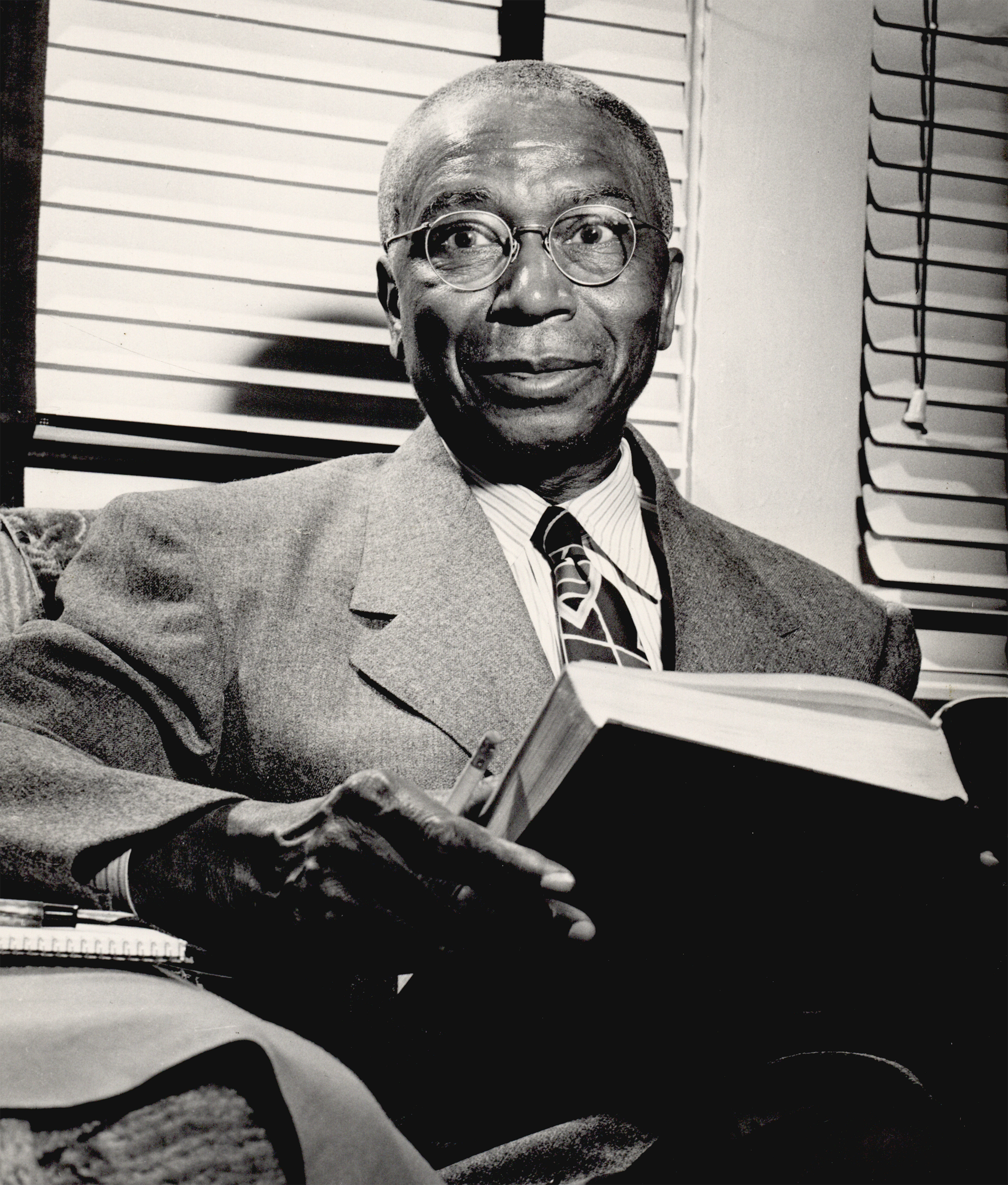Hall of Fame Member Biographies
- Home
- Hall of Fame
- Hall of Fame Member Biographies
- George W. McLaurin

George W. McLaurin
Born September 16, 1894, George W. McLaurin moved to the newly-created state of Oklahoma in 1910 and earned a bachelor’s degree from Langston University. Having completed his master’s degree at the University of Kansas, McLaurin went on to serve on Langston’s faculty, but, when he applied to law school at the University of Oklahoma, he was turned away because he was a black man. McLaurin sued the university in a case that would become one of the foundations of the modern civil rights movement.
On September 29, 1948, a federal court ruled that the University of Oklahoma's refusal to admit McLaurin due to his race was unconstitutional. To comply with the Jim Crow laws then in effect in the state, OU President George Lynn Cross arranged for McLaurin's courses to be held in classrooms with an anteroom, so that he could sit out of the view of the white students while still attending his required classes. Other special accommodations were created that included special seating areas in the cafeteria and sporting events, as well as separate restroom facilities. In response to these segregated conditions, McLaurin filed another lawsuit, stating that this environment deprived him of equality in education. The district court did not agree with his argument, denying his motion on the grounds that racial segregation is a "deeply rooted social policy of the State of Oklahoma." Undeterred, McLaurin pressed on with his case, this time appealing directly to the U.S. Supreme Court in what would become the landmark decision, “McLaurin v. Oklahoma State Regents for Higher Education.”
Before the Supreme Court, McLaurin argued that the state’s treatment of non-white students violated the Fourteenth Amendment’s first section, which forbids any state from abridging the rights of any of its citizens or denying them equal protection under the law. Though McLaurin had to wait until 1950 for the court’s decision, they ended up ruling unanimously in his favor and finding that Oklahoma must tender the same treatment to all university students regardless of race. One of the first cases to combat the "separate but equal" provision that the Supreme Court had expounded in its infamous “Plessy v. Ferguson” decision of 1896, McLaurin’s case showed how this principle could be easily manipulated to discriminate against certain individuals and show preferential treatment to others, contravening the rights enumerated in the United States’ governing documents.
Writing for the court, Chief Justice Frederick M. Vinson wrote that McLaurin was "handicapped in his pursuit of effective graduate instruction. Such restrictions impair and inhibit his ability to study, to engage in discussion and exchange views with other students, and in general to learn his professions." George W. McLaurin died in Los Angeles on September 4, 1968, at the home of his son, who followed in his father’s footsteps as a college professor.